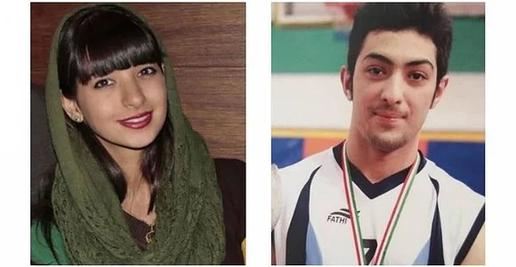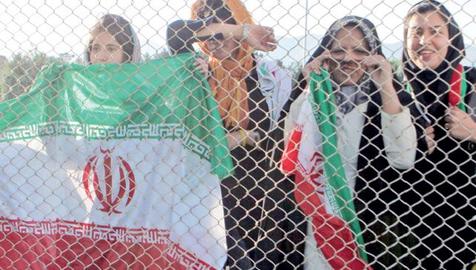Arman Abdolali, a young Iranian man sentenced to death for a crime allegedly committed when he was a minor, has been transferred to Rajaei Shahr Prison by the Iranian ahead of his possible execution.
Abdolali is accused of murdering his then-girlfriend Ghazaleh Shakur in 2014. He was 17 at the time and confessed to the killing at age 18, but later retracted it, saying he the confession had been extracted from him under torture. Despite this, he was sentenced to death in December 2015. Only international outcry has saved his life to this day.
Amnesty International sounded the alarm about Abdolali’s transfer to the Karaj prison on Wednesday. Abdolali’s execution was rescheduled twice in February and September and he is now in solitary confinement, prompting fears that he could well be hanged in the next few days. Amnesty’s deputy Middle East director Dina Eltahawy said: “Use of the death penalty against people who were under 18 at the time the crime was committed is prohibited under international law, and constitutes an abhorrent assault on child rights.”
Hossein Raisi, a lawyer and consultant at the Iran Human Rights Documentation Center, told IranWire that Iranian domestic law also bars juvenile offenders from being executed. According to Article 91 of the Islamic Penal Code, perpetrators of crimes involving qisas (“retribution”, or the right of victims’ families to retributive justice) under the age of 18 can be punished by life imprisonment, but not execution – as long as they do not understand the gravity of the offence and are assessed as not possessing “mature” minds.
“The question,” Raisi said, “is how the court came to the conclusion that Mr. Abdolali – even assuming he was indeed a murderer – was at that time familiar with the nature of the crime, or had a mature mind? Is it not so that citizens under the age of 18 are considered children all over the world, and that Iran is a party to the UN Convention on the Rights of the Child?"
He added that there were “ambiguities” in the case brought about by the forced nature of the confession. In 2019, Shakur’s family offered Abdolali a reprieve if he could tell them where her body was buried, but he could not do so. “Were Arman the murderer of his girlfriend,” Raisi said, “the confession he made in the early stages of interrogation ought to have led to the discovery of the body. But years later it has still not been located, indicating his confession wasn’t genuine.” When there is doubt in a case of this magnitude, he said, judges should always take steps to reduce the penalty.
In its 13th annual report, Iran Human Rights noted that in 2020, despite Covid-19, Iran was the only country in the world to execute children. Four juvenile offenders are known to have been executed by the Islamic Republic over the course of those 12 months. Even in Saudi Arabia, the government has announced that the death penalty will no longer be issued to minors except in terrorism cases.
Amnesty International’s annual report on the death penalty also found that Iran’s judiciary ordered around half of all executions carried out in the world in 2020. The country is one of just 23 UN member states to still use the death penalty at all.
Raisi added: "Judgment on any [criminal] case, even with the explicit confession of the accused, is accompanied by a margin of error. When a prison sentence alone could deprive a wrongdoing citizen of access to society and keep them under the strictest measures, why are they executed, so that there’s no other way to correct them?
“Conversely, execution evokes a sense of vengefulness and anger in others. Instead of fulfilling its social responsibilities and duties to its citizens, such as job creation, a healthy economic structure, and free education and health, the Iranian state is reproducing violence and suppressing human dignity."
Related coverage:
Fact Check: Does the Islamic Republic of Iran Execute Minors?
The Death Penalty and Religion: An IranWire Webinar
Executions of Iranian Drug Offenders Increase Threefold in Four Months
Wave of Executions of Baluch Iranians Horrifies Campaign Groups
visit the accountability section
In this section of Iran Wire, you can contact the officials and launch your campaign for various problems

























comments